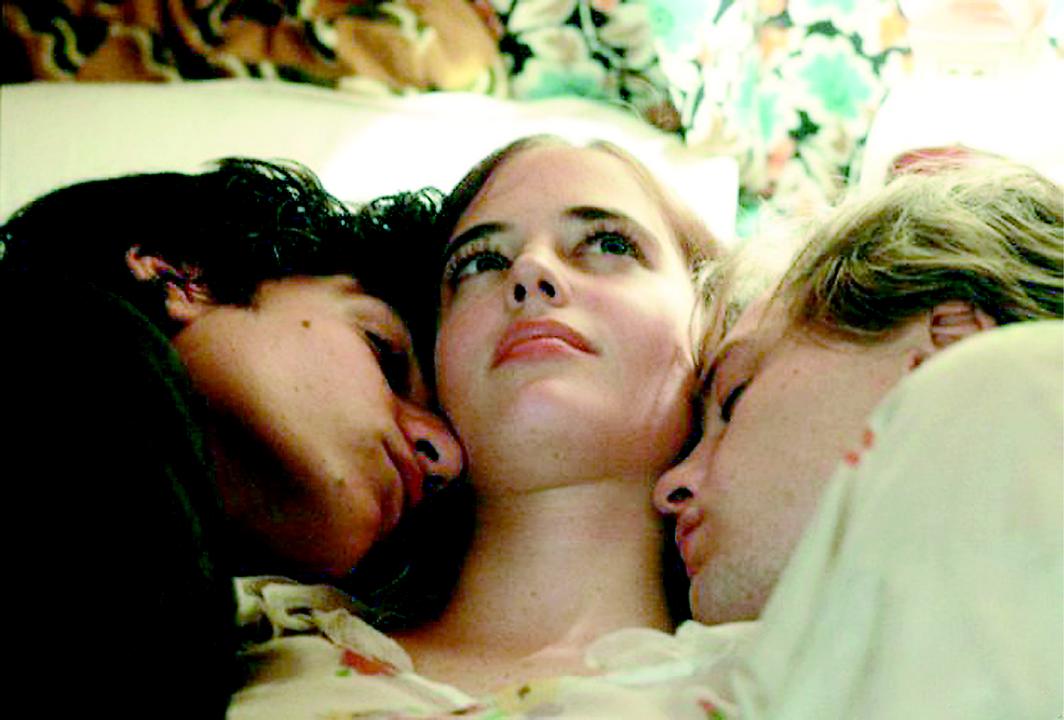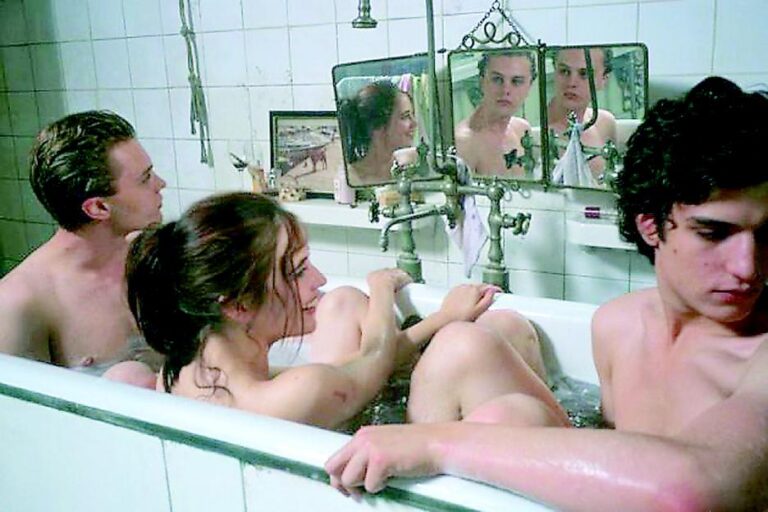Bertolucci's latest film, The Dreamers, is about as self-referential a film as Fellini's 8 1/2 or Truffaut's Day for Night. Based on the novel by Gilbert Adair, it takes place in 1968 during the student riots in Paris. In the spring of that year, the French government ousted Henri Langlois, the popular founder of the Cinematheque Francais. Film lovers were so angered that they took to the streets, fomenting a sometimes-violent revolt that very nearly threatened to topple the government. It is all but inconceivable in this age of multiplexes and Adam Sandler flicks that film could actually spark a revolution. But, back in the '60s, it did.
Our main guide into this lost world is impressionable young American exchange student Matthew (Murder by Numbers' Michael Pitt, looking like a younger, prettier version of Leonardo DiCaprio). Matthew has come to Paris to study film. He, along with an army of wide-eyed, chain-smoking students, spends his nights gazing in rapt attention at the silver screen. It is at the infamous Cinematheque Francais that he meets fellow cinema worshippers Theo (Louis Garrel) and Isabelle (Eva Green), a strangely sensual brother and sister duo who soon adopt Matthew as one of their own.
When Theo and Isabelle's parents go out of town for a month, Matthew moves out of his crummy student hotel and into their sprawling flat. There, the trio engage in a mysterious menage a trois rather hugely reminiscent of Bertolucci's 1972 film Last Tango in Paris (minus the misuse of dairy products, thankfully). While Theo and Isabelle don't appear to have an active incestual relationship, their kinky sexual games do escalate once Matthew is in the picture.
Theo and Isabelle, identical twins, seem mired in a world of juvenile interdependency. One cannot stand to be without the other—even in the bedroom. Though Michael loves and respects both of them, his feelings for Isabelle begin to run deep and he soon trips Theo's jealousy alarm.
Much of The Dreamers is taken up by Bertolucci's languid sexual weirdness. A favorite game of Theo and Isabelle is to act out a tiny portion of a film. If the other fails to guess the correct source, a cruel (often sexual) penalty must be paid. The film's NC-17 rating covers a wide range of full frontal nudity (both male and female), foreplay, bath-taking, voyeurism and masturbation, but only the occasional criminal sexual penetration. The cast is all quite attractive and looks pretty good in the altogether. Bertolucci, always a lush visual director, has a knack for crafting memorable sex scenes. Seeing the lovely Eva Green, for example, dressed up as the Venus di Milo is something I'll take to my grave. Still, the sex seems like a rather odd distraction from the explosive temporal surroundings.
Eventually, spent on kinky mind games, the story picks up the thread of the student riots once again. Theo and Isabelle are, like a great many revolutionaries, simply bored bourgeoisie more interested in reading books and reciting philosophy than in actually understanding the roots of what they support. (Theo, for example, cites an interest in Communism. “It's a revolution with books instead of guns,” he gushes. To which Matthew wisely responds, “No, it's a book.”)
The film's climax takes us out of Theo and Isabelle's apartment (a location we've been languishing in for quite some time) and back out into the streets of Paris, where we are reminded of the artistic uprising that started all this.
In all honesty, unless you're as drunk on film history as Bertolucci, much of this film will sail over your head. Bertolucci frequently drops in clips of old films, snippets of historical soundtracks and cinematic references galore. At one point, Matthew, Theo and Isabelle re-enact the hectic Louvre dash sequence from Godard's Bande à Part. If you're not intimately familiar with that 1964 film, well, there isn't a lot of point. Also, if you're only in it for the sexual decadence, you're probably better off going to see the teen sex comedy Eurotrip, which will reward your naughty desires with far fewer psychosexual interruptions.




